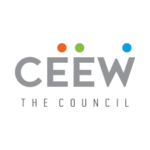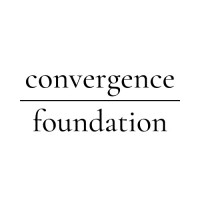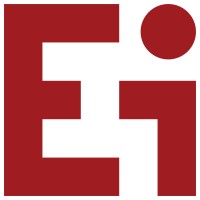
Website CEEW - Council on Energy, Environment and Water
About us
The Council on Energy, Environment and Water (CEEW) is one of South Asia’s leading not-for-profit policy research institutions. The Council uses data, integrated analysis, and strategic outreach to explain – and change – the use, reuse, and misuse of resources. The Council addresses pressing global challenges through an integrated and internationally focused approach. It prides itself on the independence of its high-quality research, develops partnerships with public and private institutions, and engages with the wider public.
In 2019, CEEW once again featured extensively across nine categories in the 2018 Global Go To Think Tank Index Report, including being ranked as South Asia’s top think tank (15 th globally) with an annual operating budget of less than USD 5 million for the sixth year in a row. CEEW has also been ranked as South Asia’s top energy and resource policy think tank in these rankings. In 2016, CEEW was ranked 2nd in India, 4 th outside Europe and North America, and 20 th globally out of 240 think tanks as per the ICCG Climate Think Tank’s standardised rankings.
In nine years of operations , The Council has engaged in over 230 research projects, published over 160 peer-reviewed books, policy reports and papers, advised governments around the world nearly 530 times, engaged with industry to encourage investments in clean technologies and improve efficiency in resource use, promoted bilateral and multilateral initiatives between governments on 80 occasions, helped state governments with water and irrigation reforms, and organised nearly 300 seminars and conferences.
The Council’s major projects on energy policy include India’s largest multidimensional energy access survey (ACCESS); the first independent assessment of India’s solar mission; the Clean Energy Access Network (CLEAN) of hundreds of decentralised clean energy firms; the CEEW Centre for Energy Finance; India’s green industrial policy; the USD 125 million India-U.S. Joint Clean Energy R&D Centers; developing the strategy for and supporting activities related to the International Solar Alliance; designing the Common Risk Mitigation Mechanism (CRMM); modelling long-term energy scenarios; energy subsidies reform; energy storage technologies; India’s 2030 Renewable Energy Roadmap; energy efficiency measures for MSMEs; clean energy subsidies (for the Rio+20 Summit); Energy Horizons; clean energy innovations for rural economies; community energy; scaling up rooftop solar; and renewable energy jobs, finance and skills.
The Council’s major projects on climate, environment and resource security include advising and contributing to climate negotiations in Paris (COP-21), especially on the formulating guidelines of the Paris Agreement rule-book; pathways for achieving Nationally Determined Contributions (NDCs) and mid-century strategies for decarbonisation; assessing global climate risks; heat-health action plans for Indian cities; assessing India’s adaptation gap; low-carbon rural development; environmental clearances; modelling HFC emissions; the business case for phasing down HFCs; assessing India’s critical minerals; geoengineering governance; climate finance; nuclear power and low-carbon pathways; electric rail transport; monitoring air quality; the business case for energy efficiency and emissions reductions; India’s first report on global governance, submitted to the National Security Adviser; foreign policy implications for resource security; India’s power sector reforms; zero budget natural farming; resource nexus, and strategic industries and technologies; and the Maharashtra-Guangdong partnership on sustainability.
The Council’s major projects on water governance and security include the 584-page National Water Resources Framework Study for India’s 12 th Five Year Plan; irrigation reform for Bihar; Swachh Bharat; supporting India’s National Water Mission; collective action for water security; mapping India’s traditional water bodies; modelling water-energy nexus; circular economy of water; participatory irrigation management in South Asia; domestic water conflicts; modelling decision making at the basin-level; rainwater harvesting; and multi-stakeholder initiatives for urban water management.
Job Description
Terms of Reference
At CEEW, we are deliberate about what we stand for (and what we don’t stand for!) as an employer. So, if the below description strikes a chord, we would love to hear from you!
We are proud to build careers in public policy and social impact.
- We offer strong visionary leadership – with emphasis on research and impact at scale
- We actively promote leadership by initiative
- We celebrate talent and ambition
- You will be surrounded by smart ambitious people who will challenge you and help you grow
- You will learn faster than your peers in other organisations
- Curiosity and irreverence, as well as responsibility, come together at CEEW
- You will get above-market remuneration
- We provide a safe space for all
- At CEEW, your life is your example for others
Designation offered
Programme Associate / Programme Lead – City Mobility
Reporting to
Senior Programme Lead
Location
Delhi
Purpose
CEEW seeks to hire a suitable candidate for the position of Programme Associate/ Programme Lead to expand its work in the area of sustainable mobility spanning public transport, transport infrastructure, low carbon technologies and travel demand management. The candidate should have experience in public transport related research or consultancy in large and medium cities in India. Candidates looking to make a meaningful contribution towards sustainable mobility including public transport, road pricing and effective implementation and governance of transport through evidence-based analysis and stakeholder engagement are encouraged to apply.
Additionally, he/she needs to support and expand team’s work on enabling cities to enshrine and adopt sustainable transport systems and services as they undergo rapid growth. The candidate should have an interest in engaging with local governments, urban mobility planning, and developing techno-commercially viable solutions, pilots for meeting mobility needs. S/he is expected to actively shape the research direction of the city-mobility programme. In equal measure, the impact of research and especially in this domain is a result of sustained engagement with authorities at state and national levels.
The candidate will be expected to build city teams – either from within or through additional hiring, to drive insight and impact from the programme at the cities level. The candidate should be able to identify capacity gaps in State Governments/ULBs, regulatory gaps, present research findings and develop implementation programs recommendations in public engagements and help drive implementation in select geographies.
Job Duties and Responsibilities
Research
- To assist in CEEW’s ongoing research on compact city planning and sustainable mobility in India. Specifically, the research will focus on developing a roadmap for city clusters to adopt and enhance public transport. This will include route planning, demand responsive scheduling, efficient operations and regular monitoring.
- To lead the city efforts on low emission zone planning, developing favourable city / state policy institutional systems, spatial data analysis to provide for street planning, NMT and public transport in cities.
- Travel to project sites, whenever necessary, to conduct meetings/interviews/trainings or collect primary information.
- To carry out field research as per requirements of the project. To develop research projects to strengthen and expand the programme of research on sustainable mobility spanning PT demand and supply, behavioural shifts in favour of public transport, urban transport funds and other budgetary allocations and bus regulations.
- To develop and coordinate effectively with cross cutting themes on air pollution, climate justice, economic growth and technology transition.
- To support the teams on spatial and temporal analysis and other suitable qualitative and quantitative research data analysis using various software and tools.
- To publish in high quality peer reviewed national and international journals.
- To actively present, disseminate research to key constituencies, advisory bodies, conferences & research institutes.
Programme Assistance
- Assist with specific projects and overall plan of activities under public transport, electric vehicle transition, and other sustainable mobility research, bridging teams research.
- Assist in preparing presentations, fact sheets, and other research communication material.
- Prepare national and international database of existing institutions, researchers and other important stakeholders, funding agencies, working in the domain of mobility.
- Assist in effective outreach of research outputs, through close coordination with communications team, engagement with wider network of stakeholders, and concerned policymakers.
- As part of research outreach, assist in event planning and management through close coordination with events management team.
- Assist and accompany senior team members for important meetings and sessions, prepare notes, and conduct follow-ups as required.
- To extrapolate and verify data, analysis and research provided by analysts; evaluate, organise and edit the data into comprehensive yet sharp reports and other collaterals.
- To keep a tab on the policy developments in India and across key countries of the world on energy sector, transport sector, and sustainable mobility.
- To write research reports/papers.
- To generate knowledge content – blogs, articles, briefs in regular intervals.
- To engage with relevant stakeholders, represent organisation and attend conferences and sessions, relevant to sustainable mobility.
Selection Criteria
Education
- Master’s degree with specialisation in physical planning, urban and regional planning, transport planning, public policy, energy, economics or related field
- Should have a strong research background, including an understanding of experimental and analytical research.
- Research experience in sustainable mobility with transport data sets is desirable
- Familiarity with public policy research techniques and spatial tools (GIS, AutoCAD, remote sensing images) is desirable
Business Experience
- Minimum 5 – 8 years of relevant work experience in mobility related fields
- Strong track record of project assistance and timely delivery of outputs
- Experience in dealing with public and private institutions, senior stakeholders especially related to public transport, bus agencies
- Experience working with development control regulations, development plans, ULBs, state governments or working in large scale urban design, infrastructure projects is desirable
Main Skills
- Strong analytical and critical thinking skills
- Strong project management skills and experience with track record of project assistance and timely delivery of outputs
- Experience with public transport related research
- Experience with quantitative and qualitative research techniques
- Strong networking skills
- Ability to conduct techno-economic analysis, sound knowledge of sustainable mobility concepts
- Good written and oral communication skills; Good report writing skills
- Ability to use MS Office application suit including MS Excel
Desirable: Relevant publications
Personality
- Willingness to learn new (research and project management) skills
- Ability to adapt to new environment and deliver under tight deadlines in a professional environment
- Ability to juggle multiple assignments and research with young analysts, mentoring them.
- Ability to develop proposals, and quick write-ups for stakeholders
- Striving for rigour in research and quality in work output
- Ability to effectively work in a team while being able to independently drive research with minimum assistance, when time demands.
- Willingness to learn, grow and develop at personal and professional front, at a rapid pace with a steep learning curve
- Ability to work in an interdisciplinary and multicultural environment
- Willing to travel, coordinate with site team for data collection, and engage with key stakeholders, operators, drivers, etc.
CEEW operates in a dynamic environment and the candidate will be required to show flexibility in undertaking a variety of tasks.
Compensation
Competitive compensation – commensurate to the experience and matching the best of standards adopted by industry or other similar organizations for similar roles.
Application Process
CEEW is an equal opportunity employer and the selection process does not discriminate on the basis of age, gender, ethnicity, religion, or caste. Female candidates are encouraged to apply.
Applications will be reviewed on a rolling basis. Interested applicants are advised to apply at the earliest possible.
Only shortlisted candidates will be contacted. We appreciate your interest.
To apply for this job please visit ceew.zohorecruit.in.





